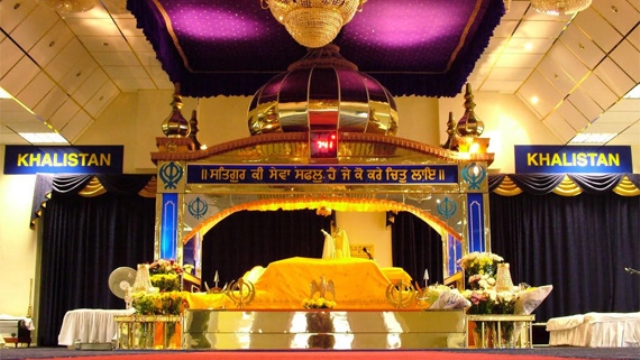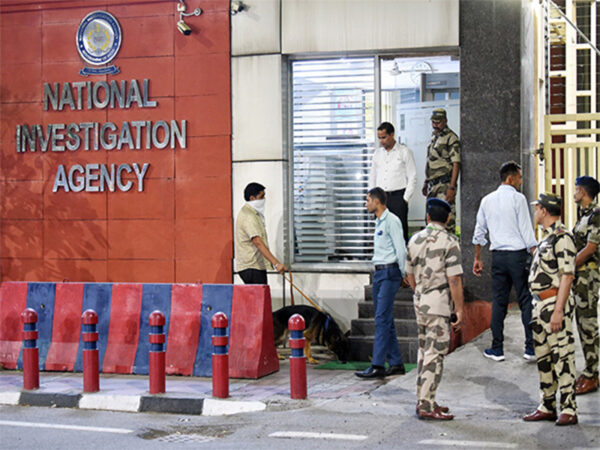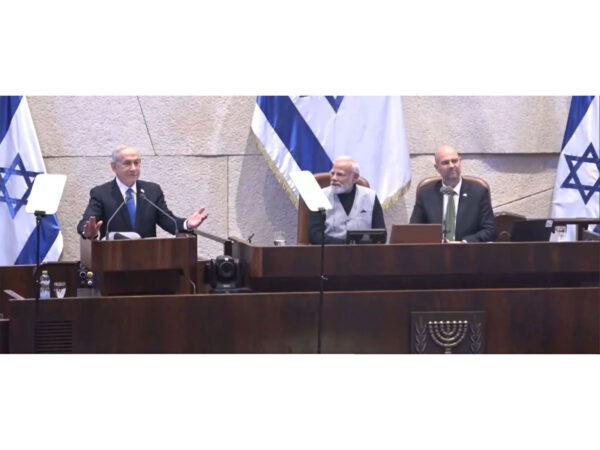
UK Charity Commission Says Displaying ‘Khalistan‘ in Gurdwaras Permissible
In a major U-turn, the Charity Commission of United Kingdom has withdrawn its notice to Gurdwara Sri Guru Singh Sabha, Slough, to remove boards displaying the word ‘Khalistan’. Since 2019 when the display of Khalistan in the main hall came to the notice of Charity Commission through an article in weekly magazine India Today, the Charity Commission has insisted that the Gurdwara remove ‘banners’ campaigning for Khalistan. The new decision follows recent submissions and expert statements.
India Today had written an article suggesting that the Gurdwara was promoting political activity and reported this to the UK Charity Commission. No British organisation or the media had raised such objection. Nevertheless, the Charity Commission took action and ordered the Gurdwara to remove the ‘banners’. However, the decision to withdraw that notice has backfired on India Today.
Several representations were made to the Charity Commission since 2019 defending the use of the words Khalistan in the main hall on the basis of human rights, right to self-determination, the concept of miri piri etc. The Charity Commission refused to budge insisting that while individuals and organisations have the right to campaign for Khalistan, it cannot be done in an institution registered as charity as that would be breach of trust.
The Gurdwara finally turned to a Barrister who solicited a report from Jasdev Singh Rai, the Director of Sikh Human Rights Group (SHRG), an organisation with UN consultative status.
The SHRG Director provided a report in which he explained that the word Khalistan was being interpreted through secular social science discourse on nationalism. He suggested that academic discourse on Khalistan is mostly from secondary sources and lacks the investigative research expected of academics or the sophisticated concepts used by other religions such as Christians. Academia on Khalistan has been restricted and influenced by its secular foundations.
Rai explained that to religious Sikhs, Khalistan means a place of perfect rule, such as Ram Rajya, Kingdom of God etc and a hope that every religious Sikh prays for. It would be a place where there would be no oppression, discrimination, prejudice, poverty, homelessness etc. It is a spiritual concept.
Rai pointed out that India Today misunderstood Jathedar Bhai Jasbir Singh’s statement in 1988 when he talked of ‘Puran Azadi’ and still continues to misunderstand the concept of Khalistan in a Gurdwara settings.
The Charity Commission accepted that there are two different interpretations of the word Khalistan. It has said that a Gurdwara registered as charity cannot display the word Khalistan if it is to mean a nation state. It cannot campaign, raise money or promote Khalistan as nation state.
However, a Gurdwara as charity is within charitable aims if it means Khalistan to mean a ‘spiritual’ place for the pure, or perfect people.
In its response, it stated: “It is clear to the Commission that ‘Khalistan’ has both an important religious meaning, such as a spiritual land of the pure, and additionally, for some, also a physical political meaning, such as the creation of a nation state on land currently part of India. While the Charity can conduct religious activities in furtherance of its objects, it cannot campaign for the creation of a nation state under charity law. As set out above, should non charities or individuals want to campaign for the creation of a nation state they can do so, but under charity law, a charity cannot.”
The barrister also pointed out that the word Khalistan is not on a banner but a board. This semantic difference has a legal cross over from a political banner to a mere display on a board.



